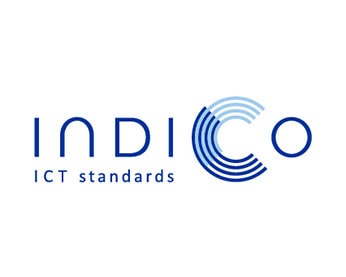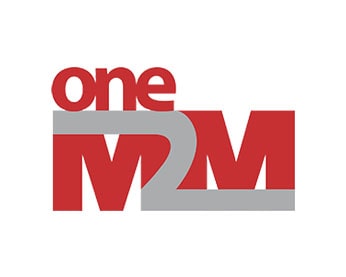ETSI and the Shandong Computer Science Center (SCSC) are pleased to invite you to participate in a IoT/oneM2M Tutorial and Hackathon from 2 to 4 June 2020 held in Jinan, Shandong Province, CHINA.
This activity is supported by oneM2M and the InDiCo Project, a project funded by the European Union and coordinated by ETSI.
A workshop will take place on the first day focusing on the IoT and oneM2M ecosystem in China, followed by the actual tutorial on the second day then the hackathon.
Target Audience:
- Business and technical decision makers from industry and start up
- Students of SCSC and academia in IT research and innovation
- Day #1 - Tuesday, June 2nd, 2020
- 9:00
9:00-9:15 Welcome
- Welcome speech SCSC/ETSI
- Official statement of objectives for the event CCSA
9:15-10:15 : Internet of Things:SCSC Qian heng
- Perspectives and developments in China Qian heng
10:15-11:00 : Internet of Things (continued):
- Vision and challenges
- Interoperability with a common service layer ETSI Xavier PIEDNOIR
11:00-12:30: oneM2M ecosystem
- oneM2M Standards and interworking capabilities - oneM2M Laurent VELEZ
Networking Lunch
14:00-15:00 oneM2M implementations - oneM2M members
- Smart lighting trial by China Unicom - China Unicom
- Smart water distribution and metering in Korea - SeungMyeong JEONG
- Other SmartCities or IoT implementations - Huawei/oneM2M
- Development of oneM2M in China - USR IOT Technology
- Design of Data acquisition equipment in IoT - Telchina Smart
- Application of IOT in the Construction of Smart City - Industry Group
15:00-15:45 oneM2M Security Framework - oneM2M Bob FLYNN
Break
16:00-16:45 : oneM2M Conformance testing & Certification
- Enabling interoperability and security - oneM2M Laurent VELEZ
16:45-17:00 : Wrap up and next steps - SCSC/ETSI
End of day
- Day #2 - Wednesday, June 3rd, 2020
- 9:00
Presentations; Tutorials; Hackathon rules
Tuesday morning
- Introductions
- Tutorial on oneM2M : oneM2M Common Architecture for IoT
- open source (Eclipse OM2M) introduction
Tuesday afternoon
- Demonstration: How to Quickly Develop your IoT Application
- Hands on exercise with participants: Building small project with HW or SW elements
- Tutorial conclusion
Further items for hackathon participants:
- Form teams
- Per team, select one of the challenges to be solved, using the oneM2M architecture and service platform.
Additional requirements:
- Each project to combine use the HW provided and software elements as well as data provided.
- Requirement to use the oneM2M service platform.
- Application to be created for PC, web or mobile (iOS, Android).
- Day #3 - Thursday, June 4th, 2020
- 9:00
hackathon team work; awards and certificates
Wednesday morning + early afternoon
- The teams develop and finalize their projects.
Wednesday afternoon
- Presentation of each project
- Projects are reviewed by the jury during coffee break
- Awards
The venue is:
Shandong Computer Science Center
Jinan, Shandong, China
Today, sensors, actuators, tags, vehicles, and intelligent things all have the ability to communicate. The number of IoT devices is continuously increasing, and it has been predicted to see billions of connected objects interconnected in the near future. IoT applications provide advantages in various domains from smart cities, factories of the future, connected cars, home automation, e-health to precision agriculture. This fast-growing ecosystem is leading IoT towards a promising future. However, IoT market expansion opportunities are not straightforward. A set of challenges should be overcome to enable IoT mass-scale deployment across various industries including interoperability, complexity, and scalability issues.
Currently, the IoT market is suffering from vertical fragmentation affecting the majority of business sectors. In fact, various vendor-specific IoT solutions have been designed independently for specific applications, which has led to serious interoperability issues. To address this challenge, eight of the most important telecom standardisation organisations in the world established a global partnership project called oneM2M. oneM2M provides a common architecture for IoT cross-domain interoperability in terms of communication and semantic data.
The Eclipse OM2M open source project offers a full open source implementation of the oneM2M standard. It supports all types of interfaces and nodes defined in the standard including “Infrastructure Node”, “Middle Node”, “Application Service Node” and “Application Dedicated Node”. Each node may host a set of applications and a Common Service Entity including capabilities for communication protocol bindings, device interworking, management, security, etc. Eclipse OM2M relies on a modular architecture, designed on top of a protocol-independent kernel, running on top of an OSGi layer and is highly extensible via plugins which make a promising candidate for integration and experimentation.
The tutorial will be structured in two parts. In the first part, we will develop the foundations and the technical background that will be useful for the attendees for getting started with the oneM2M common architecture’s main concepts, features and interfaces. In the second part, we will conduct the technical learning part. This will consist of interactive training that will address the different issues necessary for developers. This includes understanding and manipulating the oneM2M API for developing applications and integrating devices on top of the Eclipse OM2M platform.
The structure of the tutorial is the following:
Technical Presentations
- oneM2M Common Architecture for IoT
- Eclipse OM2M, Open Source oneM2M-based Platform
Demonstrations and API manipulations
- Hands-on oneM2M, development of your IoT Applications
- Interworking with legacy and vendor-specific technologies
Basic software development skills are a must.
Laptop is required, with USB-A connectivity (1 port)



